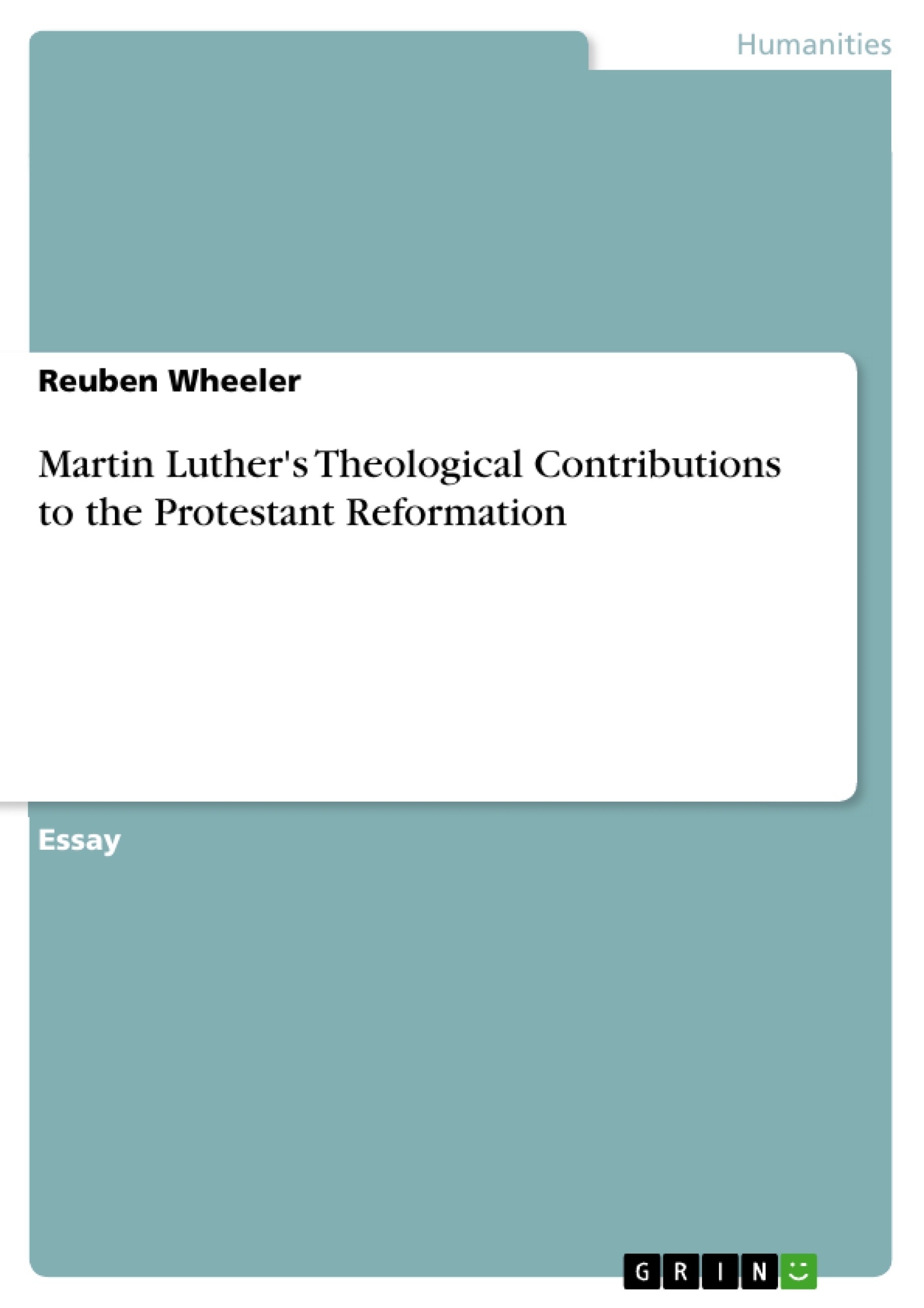The following essay will discuss three major ideas of Martin Luther, the German reformer. Firstly, it will explain Luther’s opposition to the sale of indulgences, which is considered the catalyst for the age of reformation in the European church. Secondly, his ever-developing doctrine of justification and its biblical foundation will be discussed. Finally, the priesthood of all believers and contradiction to the Church’s hierarchical structure will be highlighted as a foundational element of the Protestant Church. All three theological viewpoints underline Luther’s call for every Christian to carry spiritual responsibility and recognise the access they have through their righteousness in Christ.
The essay subsequently argues that while Luther never intended on starting a new denomination - he merely wanted to reform the existing church - his critique was ultimately the catalyst for a global movement against a religious elite with corrupt practices.
Table of Contents
- Abstract
- Introduction
- The Sale of Indulgences
- The Doctrine of Justification
Objectives and Key Themes
This essay will explore three key ideas of Martin Luther, a prominent figure in the Reformation. It will analyze his criticisms of indulgences, delve into his doctrine of justification, and examine his concept of the priesthood of all believers. The essay aims to shed light on the context and impact of these theological developments on the religious and political landscape of the time.
- Luther's opposition to the sale of indulgences
- The doctrine of justification and its biblical foundations
- The concept of the priesthood of all believers
- Luther's impact on the religious and political landscape
- The significance of Luther's theological contributions to church history
Chapter Summaries
- The Sale of Indulgences: This chapter discusses Luther's strong opposition to the sale of indulgences, a practice that was widely accepted within the Roman Catholic Church. The essay examines the theological and practical reasons behind Luther's criticism and highlights the significance of his Ninety-Five Theses as a catalyst for the Reformation.
- The Doctrine of Justification: This chapter focuses on Luther's theology of salvation, particularly his concept of "justification by faith." The essay explores the shift in vocabulary from "salvation by grace" to "justification by faith" and examines the implications of this theological shift for the understanding of salvation.
Keywords
The essay primarily focuses on Martin Luther's theological ideas, examining concepts such as indulgences, justification, priesthood of all believers, reformation, and the religious and political landscape of the 16th century.
Frequently Asked Questions
Why did Martin Luther oppose the sale of indulgences?
Luther criticized the practice because he believed it was corrupt and theologically unsound. He argued that forgiveness cannot be bought and that the practice misled Christians regarding the nature of repentance.
What is Luther's doctrine of justification?
It is the belief that salvation is achieved through faith alone ("justification by faith") rather than through good works or religious rituals. This shift emphasized God's grace as the sole source of salvation.
What does the "priesthood of all believers" mean?
This concept challenges the hierarchical structure of the Church, asserting that every Christian has direct access to God through Christ and carries spiritual responsibility, rather than relying solely on a religious elite.
Did Martin Luther intend to start a new church denomination?
No, Luther's original intention was to reform the existing Roman Catholic Church from within. However, his critique became the catalyst for a global movement and the eventual formation of Protestant denominations.
What was the significance of the Ninety-Five Theses?
The Ninety-Five Theses acted as the catalyst for the Reformation in Europe by openly challenging the Church's authority and practices, leading to a major religious and political transformation.
- Quote paper
- Reuben Wheeler (Author), 2022, Martin Luther's Theological Contributions to the Protestant Reformation, Munich, GRIN Verlag, https://www.grin.com/document/1331611



